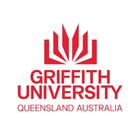Master of Suicidology
- Posted by Griffith University
- Home
- Courses
- Griffith University
- Master of Suicidology
Master of Suicidology
The Master of Suicidology provides an extension to the existing Graduate Certificate in Suicide Prevention Studies currently offered by the Australian Institute for Suicide Research and Prevention (AISRAP). The program is designed to produce graduates who are knowledgeable and skilled in the identification of a range of concerns regarding suicidal…
Categories
COURSE DESCRIPTION
The Master of Suicidology provides an extension to the existing Graduate Certificate in Suicide Prevention Studies currently offered by the Australian Institute for Suicide Research and Prevention (AISRAP).
The program is designed to produce graduates who are knowledgeable and skilled in the identification of a range of concerns regarding suicidal behaviours and their planned management at various levels (including research, public policy, and primary, secondary and tertiary prevention). The program will allow students to explore the historical and sociological development of the complexities of suicide. Furthermore, students will have the opportunity to compare different management methods and identify the advantages and disadvantages of each theoretical approach to treatment and management of suicidal behaviour and its prevention. Students will examine the factors that influence the development and assessment of suicidal behaviours and the ways in which current intervention and prevention strategies deal with these factors.
This program does not aim to educate and train students to be clinicians (in the assessment and treatment of suicidal behaviour) but emphasises the importance of scientific and research-based enquiry and investigation at all levels of suicide prevention and intervention.
Finally, this program offers two pathways of educational outcomes for students including a final study year focused on either research (dissertation) or coursework (elective courses of relevance to the domain of suicide research and prevention).
My career opportunities
This program will benefit individuals currently employed in or interested in gaining employment in this speciality field including health, mental health, education, law enforcement, emergency work, clergy, social, community and youth service sectors.
This program will equip policy makers in public health, sociology and other health and human service domains with specific suicide research and prevention knowledge applicable to local, state, national and international level strategic planning.
Additionally, this program provides a pathway to higher degree research qualifications (for example, PhD in Suicidology) and a career in the academic context for those students who complete the dissertation component.
EDUCATIONAL INSTITUTION
Griffith University is ranked in the top 2% of universities worldwide and strives to create a brighter future for all by prioritising innovation and social impact. We are committed to providing international students with quality education, guidance, and support. With Australia’s most awarded teachers, Griffith University offers a full suite of undergraduate, postgraduate and research degrees in areas including architecture, construction, and planning; business and government; criminology and law; education; engineering, IT and aviation; humanities, languages and social science; medicine, dentistry and health; music and performing arts; science and environment; visual and creative arts.
Griffith University is ranked in the top 2% of universities worldwide and strives to create a brighter future for all by prioritising innovation and social impact. We are committed to providing international students with quality education, guidance, and support.
With Australia’s most awarded teachers, Griffith University offers a full suite of undergraduate, postgraduate and research degrees in areas including architecture, construction, and planning; business and government; criminology and law; education; engineering, IT and aviation; humanities, languages and social science; medicine, dentistry and health; music and performing arts; science and environment; visual and creative arts.




